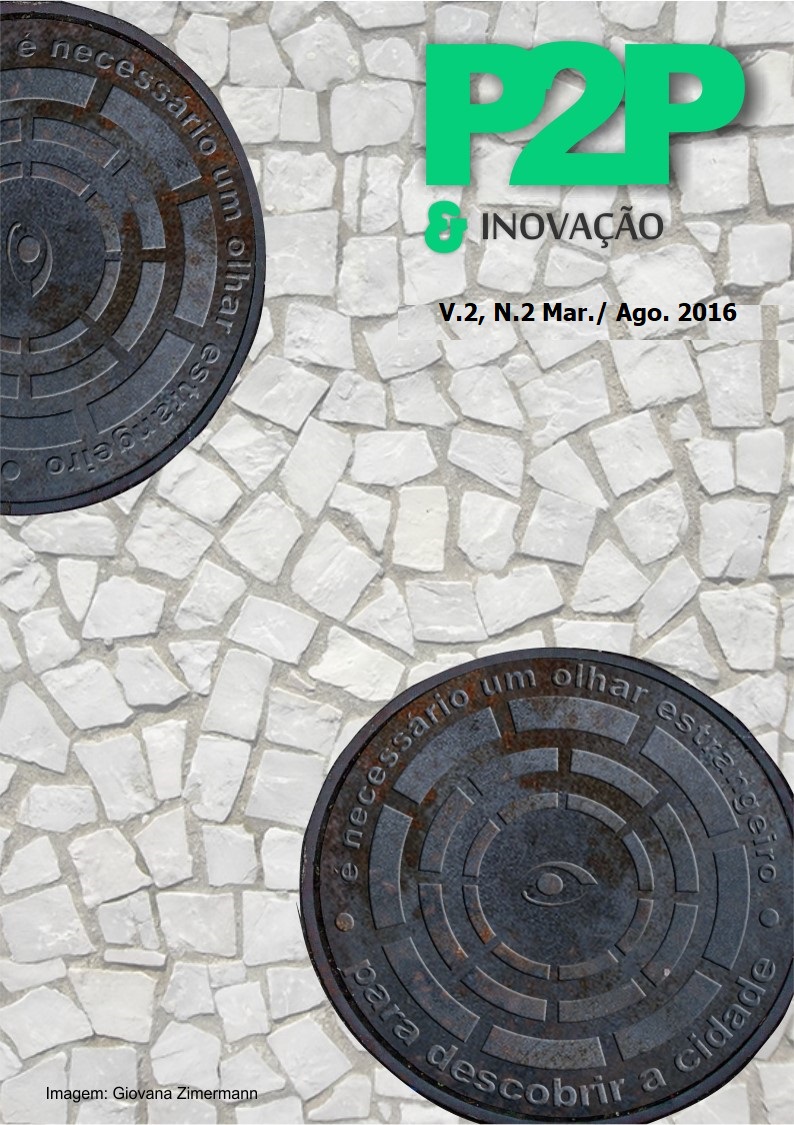THE IDEALISM OF DIALOGUE AND THE ECONOMY OF THE COMMONS
DOI:
https://doi.org/10.21721/p2p.2016v2n2.p14-27Abstract
This paper explores the possibility of an economic system different from both capitalism and communism, that is based on the major ethical values that constitute the principles of human dialogue, the so-called Idealism of Dialogue. This implies an economic model based on cooperativism. An economy modelled in this way envisions the Common Good of society. This is more than the sum of the interests of individuals and it can be measured by looking at the intended impact on society of actions taken by organizations. If the impact of these organizations is oriented towards cooperative action they can be characterized as developing the Common Good. If they block cooperative action they can be seen to be serving private interests. This paper shows how a group of Austrian entrepreneurs has started a network of enterprises that functions both as a kind of cooperative and as a non-governmental organization (Gemeinwohl-Ökonomie). They promote the ideals of Greek oỉkonomía and at the same time consider their own efforts to be the accomplishment of the main principles of Enlightenment which are liberty, equality and fraternity.
Downloads
References
SUÁREZ MÜLLER, Fernando. The Process of Humanization. In: KLUNDERT, M. van de; VAN BOESCHOTEN, R. (Ed.). Organisations & Humanisation: Perspectives on organising humanisation and humanising organisations. Nova Iorque: Gower Publishing, 2016. Cap. 1.
STEHR, Nico. Die moralisierung der märkte: eine gesellschaftstheorie. Frankfurt: Suhrkamp, 2007.
Aristotle. Oeconomica. Loeb: London, 2010.
WELZER, Harald. Selbst Denken: eine anleitung zum widerstand. Frankfurt: Fischer, 2013.
GEMEINWOHL-ÖKONOMIE. Handbuch zur Gemeinwohl-Bilanz. 2013. Disponível em: <https://www.ecogood.org/sites/default/files/dateien/page/handbuch_v4.1_offical_release.pdf>. Acesso em: 30 mar. 2016.
CRANE, Andrew et al (Ed.). The Oxford Handbook of corporate social responsibility. Oxford: Oxford Handbooks, 2009.
FELBER, Christian. Die Gemeinwohl-Ökonomie: das wirtschaftsmodell der zukunft. Viena: Deuticke, 2010.
PIKETTY, Thomas. Le capital au XXIe siècle. Seuil: Paris, 2013.
Herman Daly , For the Common Good, Beacon, Boston (11989), and H. Daly (1991), Steady-State Economics, Island Press, Washington (11979); Niko Paech (2011), Befreiung vom Überfluss. Auf dem Weg in die Postwachstumsökonomie [Liberation from Abundance. The Road to The Postgrowth Economy], Oekom, München.
Downloads
Published
Issue
Section
License
Copyright (c) 2019 P2P & INOVAÇÃO

This work is licensed under a Creative Commons Attribution-NonCommercial-ShareAlike 4.0 International License.
The journal is published under the Creative Commons - Attribution - Noncommercial - Share Alike 3.0 Brazil.
The published work is considered collaboration and therefore the author will not receive any remuneration for this as well as anything will be charged in exchange for publication.
All texts are responsibility of the authors.
It’s allowed partial or total reproduction of the texts of the magazine since the source is cited.















